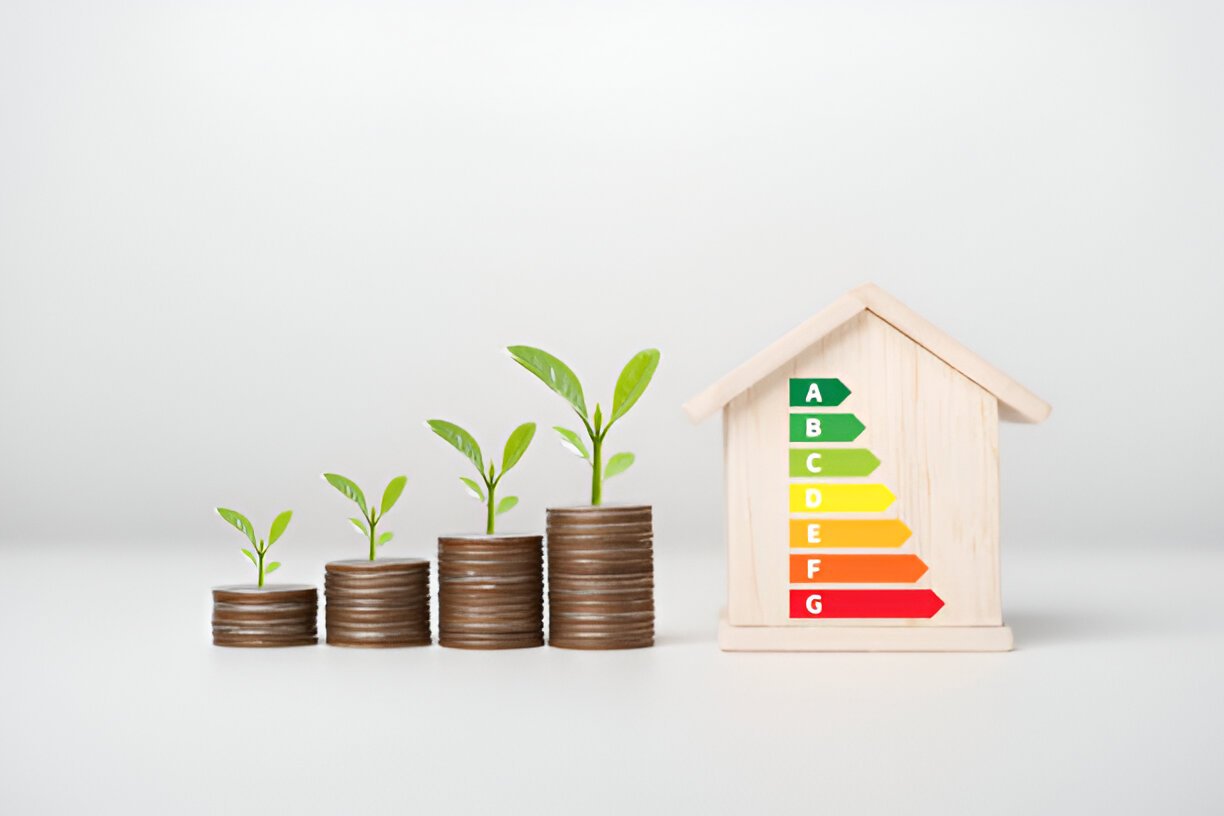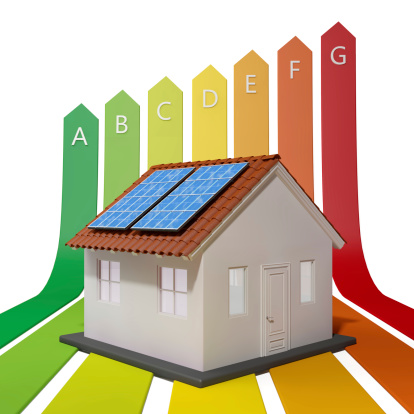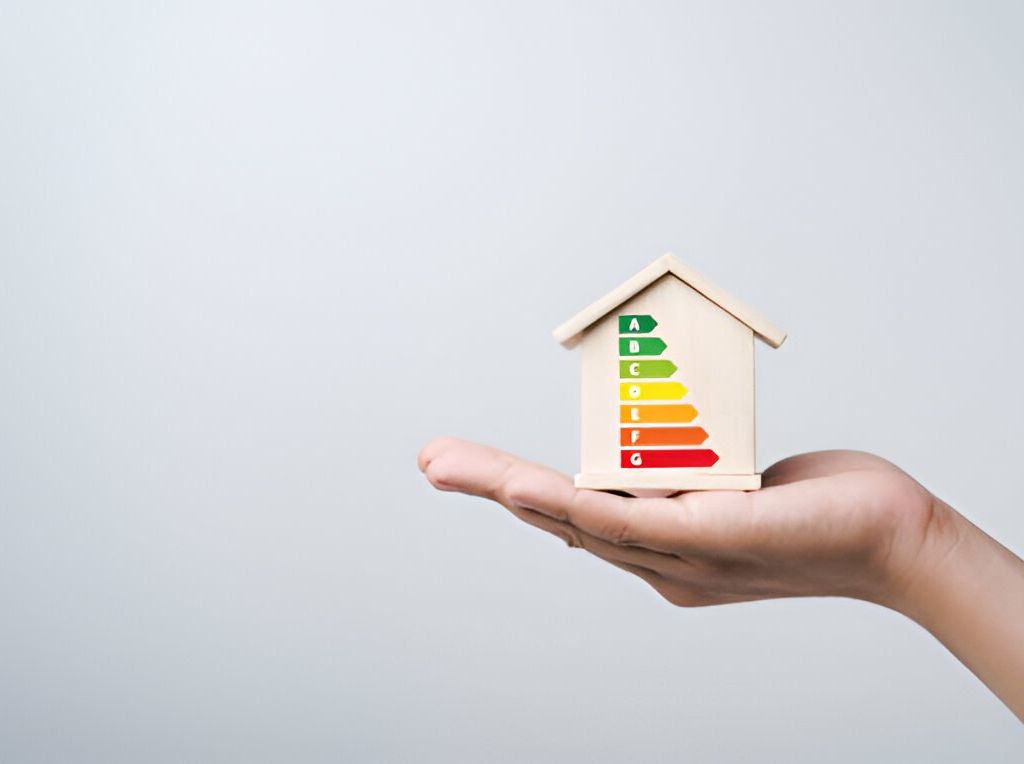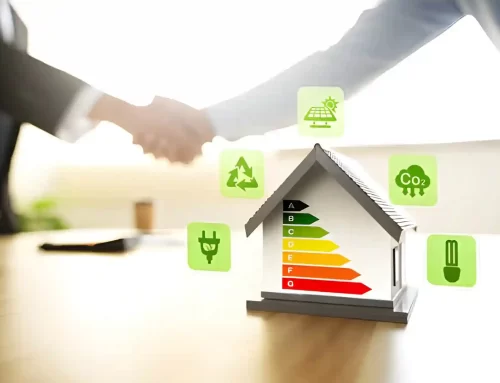
You might think Energy Performance Certificates (EPCs) are just another bureaucratic formality in the property world, but let me shed light on their vital role.
From evaluating energy efficiency to outlining potential savings, EPCs serve as a crucial tool in today’s eco-conscious era. Understanding the nuances of these certificates can not only lead to cost-effective solutions but also pave the way for a more sustainable future.

Let’s explore how EPCs can truly make a difference in the way we approach energy consumption and building efficiency.
Understanding Energy Performance Certificates
When assessing the energy efficiency of a building, Energy Performance Certificates (EPCs) provide crucial insights into its heating costs, carbon dioxide emissions, and potential for energy efficiency improvements. Understanding the energy efficiency benefits of an EPC is paramount. These certificates not only highlight cost-saving measures through recommendations for improving energy usage but also conduct a detailed environmental impact assessment.
By breaking down the property’s energy performance, EPCs offer a comprehensive view of where energy is utilized, aiding in identifying areas for improvement. The property energy breakdown within an EPC includes estimates for heating, hot water, and lighting costs, enabling comparisons between properties and showcasing potential savings over time.
Necessity of an EPC
In understanding the energy efficiency benefits of an Energy Performance Certificate (EPC), it becomes evident that recognizing the necessity of obtaining an EPC is foundational when considering property transactions or improvements.
EPC benefits encompass providing a detailed property assessment that includes energy efficiency ratings, potential cost savings, and the environmental impact of the property.
The EPC serves as a crucial tool for understanding a property’s energy performance, highlighting areas where improvements can lead to significant cost reductions and reduced environmental footprint.
Interpreting an EPC
Interpreting an EPC involves analyzing the property’s energy efficiency rating and recommendations for potential improvements. The EPC rating breakdown provides a clear indication of the property’s energy efficiency level, ranging from A to G.

Alongside this rating, energy saving recommendations are offered, highlighting cost-effective upgrades that can enhance the property’s energy efficiency. These recommendations are crucial for understanding how to improve the property’s environmental impact through energy-saving measures.
By focusing on property energy efficiency, one can identify areas for enhancement to reduce energy consumption and lower associated costs. The EPC not only assesses the current state of the property but also provides insights into viable upgrades that can positively impact its overall energy performance.
Understanding the EPC’s assessment of the property’s energy efficiency is vital for making informed decisions regarding energy-saving improvements and optimizing the environmental sustainability of the property.
Domestic Energy Assessment Process
The Domestic Energy Assessment process involves a thorough evaluation of a property’s energy efficiency and recommendations for potential enhancements.
During the assessment, a focus is placed on identifying energy saving tips that can improve the property’s overall performance. This includes evaluating the use of green technologies, implementing sustainability measures, and suggesting renewable energy solutions to enhance efficiency.
Additionally, the assessment considers the benefits of home insulation, highlighting how proper insulation can lead to significant energy savings over time.
New Build Energy Assessment Details
Conducting a new build energy assessment involves an On Construction Domestic Energy Assessor (OCDEA) evaluating the property’s energy efficiency based on building plans. This assessment is crucial as it ensures that the new construction meets energy efficiency standards and guidelines set forth for sustainable building practices. By conducting this assessment, accurate energy cost projections can be made post-construction, aiding in budgeting and resource management. The assessment’s accuracy is paramount for predicting the property’s future energy performance and providing insights into potential energy-saving measures that can be implemented.
Furthermore, the benefits of a new build energy assessment extend beyond compliance; they provide valuable information on the property’s energy efficiency, helping developers and homeowners make informed decisions. Understanding how a property performs in terms of energy consumption allows for adjustments to be made during the construction phase to optimize efficiency. This proactive approach not only reduces energy costs in the long run but also contributes to environmental sustainability by minimizing the property’s carbon footprint.
EPC Regulations and Approved Organizations
Navigating through EPC regulations and approved organizations is crucial for ensuring compliance and accuracy in energy performance assessments. EPC accreditation holds paramount importance, as only accredited domestic energy assessors can produce valid EPCs in England, Wales, and Northern Ireland. In Scotland, EPC production is restricted to organizations approved by the Scottish Government.

Criteria for approved EPC assessors vary by region, ensuring rigorous standards are met. The EPC format exhibits variations across regions, reflecting specific energy efficiency reporting requirements. EPCs are valid for 10 years, after which a renewal process must be initiated to maintain compliance.
Implementing EPC recommendations not only enhances energy efficiency but also promotes environmental sustainability. By working with approved organizations, property owners can leverage the benefits of accurate energy performance assessments, ultimately leading to improved energy efficiency and reduced carbon footprints.
Frequently Asked Questions
Are There Any Specific Requirements for Displaying an EPC in a Property, Such as Where It Should Be Placed or How It Should Be Presented?
When displaying an EPC in a property, ensure it’s prominently placed near property details, visible to potential buyers. Present it clearly, emphasizing energy efficiency rating. Verify authenticity online. Renew every 10 years or after improvements.
What Are the Potential Consequences or Penalties for Not Having a Valid EPC When Selling or Renting a Property?
Not having a valid EPC when selling or renting a property can lead to potential consequences like legal implications, financial penalties, and non-compliance with enforcement measures. It’s crucial to ensure EPC validity to avoid such repercussions.
How Can Property Owners Verify the Authenticity of an EPC to Ensure It Is Not Forged or Inaccurate?
To verify an EPC’s authenticity, I recommend a thorough EPC verification process. This involves checking for security features, such as holograms and unique reference numbers, to avoid forgeries and ensure accuracy. Validity confirmation is crucial.
Are There Any Limitations on the Information That Can Be Included in an EPC, Such as Specific Details on Energy Usage or Construction Materials?
When considering Energy Performance Certificates, limitations exist on specific details like energy consumption and construction materials. Data accuracy is crucial for assessing energy efficiency. Reassessment may be necessary for updated property information.
Can Property Owners Request a Reassessment of Their Property’s Energy Performance if They Believe the Initial EPC Rating Is Inaccurate or Outdated?
If I have concerns about the accuracy of my property’s EPC rating or believe it’s outdated, I can request a reassessment. This involves a property inspection to determine energy efficiency improvements needed for an updated rating.
Conclusion
In conclusion, Energy Performance Certificates are crucial tools in evaluating and improving the energy efficiency of buildings.
By providing detailed assessments, cost-saving insights, and tailored recommendations, EPCs pave the way for a more sustainable future in the property sector.
Understanding and utilizing EPCs can’t only enhance the market value of properties but also contribute to reduced energy consumption and carbon emissions, ultimately leading to a greener and more environmentally friendly built environment.
About the Author: LandlordCertificate
Related Posts
Get Social
Recent Posts
- Asbestos Management Survey London: Update Your Property Records
- Gas Safety Certificate London: Why Regular Checks Save Money Long-Term
- FRA London Explained: How a Professional Fire Risk Assessment Keeps You Compliant and Safe
- When a New Tenancy Requires Your EICR Certificate London Renewal
- Fire Safety Certificate London: Integrating Fire Alarms and Emergency Lighting













